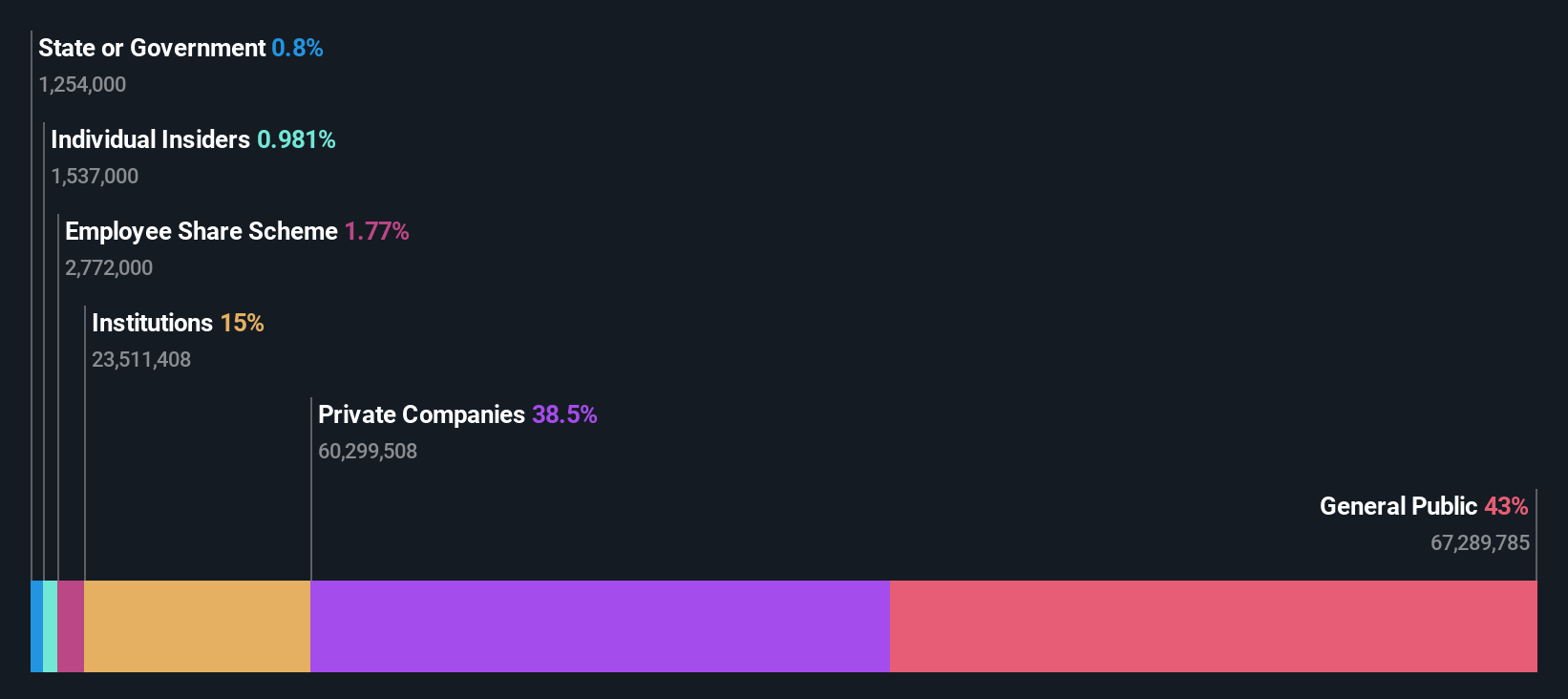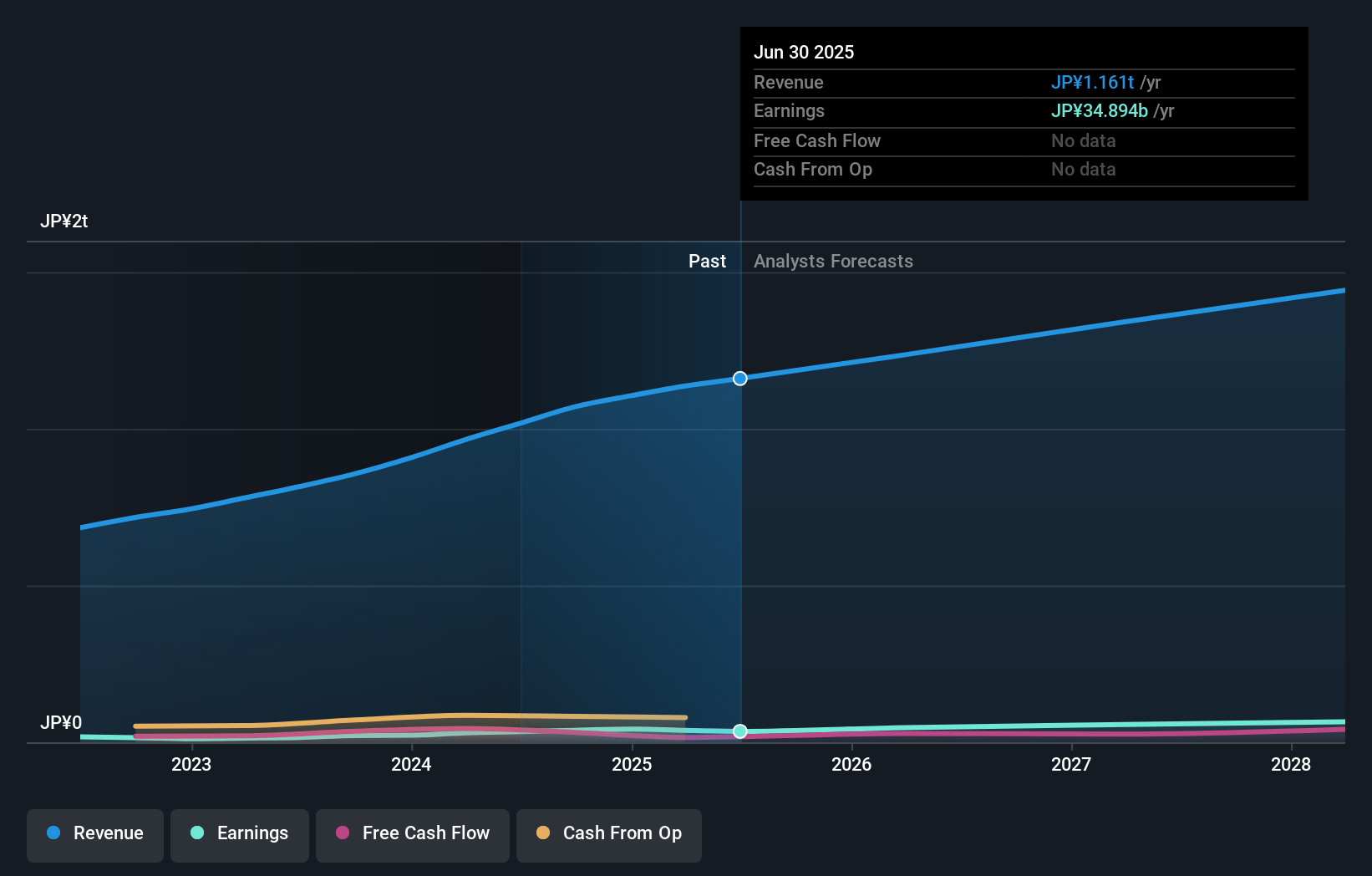- Japan
- /
- Hospitality
- /
- TSE:7550
Individual investors among Zensho Holdings Co., Ltd.'s (TSE:7550) largest stockholders and were hit after last week's 3.0% price drop
Key Insights
- Zensho Holdings' significant individual investors ownership suggests that the key decisions are influenced by shareholders from the larger public
- 50% of the business is held by the top 8 shareholders
- 15% of Zensho Holdings is held by Institutions
If you want to know who really controls Zensho Holdings Co., Ltd. (TSE:7550), then you'll have to look at the makeup of its share registry. We can see that individual investors own the lion's share in the company with 43% ownership. Put another way, the group faces the maximum upside potential (or downside risk).
And last week, individual investors endured the biggest losses as the stock fell by 3.0%.
In the chart below, we zoom in on the different ownership groups of Zensho Holdings.
See our latest analysis for Zensho Holdings

What Does The Institutional Ownership Tell Us About Zensho Holdings?
Institutional investors commonly compare their own returns to the returns of a commonly followed index. So they generally do consider buying larger companies that are included in the relevant benchmark index.
We can see that Zensho Holdings does have institutional investors; and they hold a good portion of the company's stock. This suggests some credibility amongst professional investors. But we can't rely on that fact alone since institutions make bad investments sometimes, just like everyone does. If multiple institutions change their view on a stock at the same time, you could see the share price drop fast. It's therefore worth looking at Zensho Holdings' earnings history below. Of course, the future is what really matters.

Zensho Holdings is not owned by hedge funds. Nihon Create Co. Ltd. is currently the company's largest shareholder with 38% of shares outstanding. Meanwhile, the second and third largest shareholders, hold 2.6% and 2.4%, of the shares outstanding, respectively.
We also observed that the top 8 shareholders account for more than half of the share register, with a few smaller shareholders to balance the interests of the larger ones to a certain extent.
While studying institutional ownership for a company can add value to your research, it is also a good practice to research analyst recommendations to get a deeper understand of a stock's expected performance. There are plenty of analysts covering the stock, so it might be worth seeing what they are forecasting, too.
Insider Ownership Of Zensho Holdings
While the precise definition of an insider can be subjective, almost everyone considers board members to be insiders. Company management run the business, but the CEO will answer to the board, even if he or she is a member of it.
I generally consider insider ownership to be a good thing. However, on some occasions it makes it more difficult for other shareholders to hold the board accountable for decisions.
Our data suggests that insiders own under 1% of Zensho Holdings Co., Ltd. in their own names. But they may have an indirect interest through a corporate structure that we haven't picked up on. Being so large, we would not expect insiders to own a large proportion of the stock. Collectively, they own JP¥15b of stock. It is good to see board members owning shares, but it might be worth checking if those insiders have been buying.
General Public Ownership
The general public, who are usually individual investors, hold a 43% stake in Zensho Holdings. This size of ownership, while considerable, may not be enough to change company policy if the decision is not in sync with other large shareholders.
Private Company Ownership
We can see that Private Companies own 38%, of the shares on issue. It's hard to draw any conclusions from this fact alone, so its worth looking into who owns those private companies. Sometimes insiders or other related parties have an interest in shares in a public company through a separate private company.
Next Steps:
It's always worth thinking about the different groups who own shares in a company. But to understand Zensho Holdings better, we need to consider many other factors. Consider risks, for instance. Every company has them, and we've spotted 2 warning signs for Zensho Holdings you should know about.
But ultimately it is the future, not the past, that will determine how well the owners of this business will do. Therefore we think it advisable to take a look at this free report showing whether analysts are predicting a brighter future.
NB: Figures in this article are calculated using data from the last twelve months, which refer to the 12-month period ending on the last date of the month the financial statement is dated. This may not be consistent with full year annual report figures.
Valuation is complex, but we're here to simplify it.
Discover if Zensho Holdings might be undervalued or overvalued with our detailed analysis, featuring fair value estimates, potential risks, dividends, insider trades, and its financial condition.
Access Free AnalysisHave feedback on this article? Concerned about the content? Get in touch with us directly. Alternatively, email editorial-team (at) simplywallst.com.
This article by Simply Wall St is general in nature. We provide commentary based on historical data and analyst forecasts only using an unbiased methodology and our articles are not intended to be financial advice. It does not constitute a recommendation to buy or sell any stock, and does not take account of your objectives, or your financial situation. We aim to bring you long-term focused analysis driven by fundamental data. Note that our analysis may not factor in the latest price-sensitive company announcements or qualitative material. Simply Wall St has no position in any stocks mentioned.
About TSE:7550
Zensho Holdings
Engages in the management of food service chain restaurants, and development of sales systems and food processing systems in Japan, Americas, China, Europe, ASEAN, and internationally.
High growth potential with adequate balance sheet.
Similar Companies
Market Insights
Community Narratives



